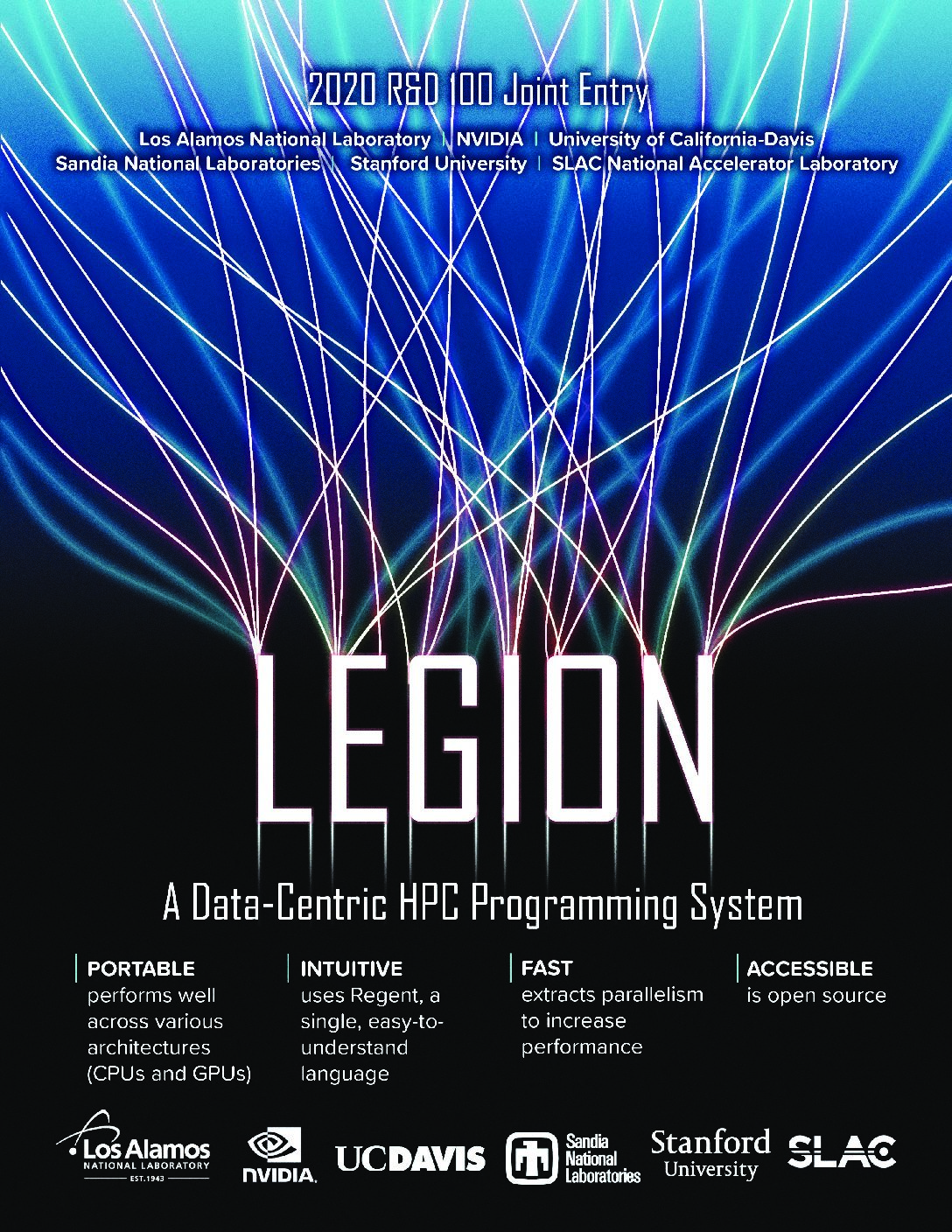Legion: A data-centric programming system
Category: IT/Electrical
Developers: Los Alamos National Laboratory
Co-Developers: NVIDIA University of California – Davis, Sandia National Laboratories, Stanford University, SLAC, National Accelerator Laboratory
United States
Product Description:Supercomputers are poised to solve many of society’s most pressing problems in medicine, energy and manufacturing, but to do so they must move to the next computing scale — the exascale, performing a billion operations per second. The supercomputing scientific applications that will better capture physical and natural processes are therefore becoming more complex. Computing at the exascale will be limited by the application developer’s ability to schedule tasks and move data. Los Alamos National Laboratory’s Legion programming system removes this bottleneck by automating task scheduling and data movement. Legion improves performance, speed and scalability for supercomputing applications in machine learning, materials science, life and physical science, up to ten-fold. Legion is the only data-centric programming system that offers this level of automation through use of a single programming language. The program has been used on many of the world’s top supercomputers, and more applications are turning to Legion as they look to scale.
Developers: Los Alamos National Laboratory
Co-Developers: NVIDIA University of California – Davis, Sandia National Laboratories, Stanford University, SLAC, National Accelerator Laboratory
United States
Product Description:Supercomputers are poised to solve many of society’s most pressing problems in medicine, energy and manufacturing, but to do so they must move to the next computing scale — the exascale, performing a billion operations per second. The supercomputing scientific applications that will better capture physical and natural processes are therefore becoming more complex. Computing at the exascale will be limited by the application developer’s ability to schedule tasks and move data. Los Alamos National Laboratory’s Legion programming system removes this bottleneck by automating task scheduling and data movement. Legion improves performance, speed and scalability for supercomputing applications in machine learning, materials science, life and physical science, up to ten-fold. Legion is the only data-centric programming system that offers this level of automation through use of a single programming language. The program has been used on many of the world’s top supercomputers, and more applications are turning to Legion as they look to scale.

Cover_Legion_lanl.pdf
